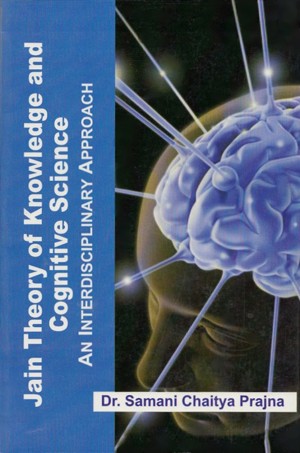The scope of Jain theory of knowledge is multidimensional. It includes transcendental knowledge as well as empirical one. The Jain theory of knowledge basically depends upon the concept of soul. Soul is the central theme in Jain philosophy. According to Jain philosophy, soul is the substance and knowledge is its attribute. Knowledge is the innate quality of the soul. We cannot think of soul without knowledge and vice versa. Even in liberated state, knowledge remains with the soul. Therefore, there cannot be any dividing line between consciousness and knowledge. Both are synonymous. Jain theory of cognition basically depends upon the concept of soul and consciousness. The Jain philosophy is essentially focussed on the existence of soul (jiva or the living being). It also describes in detail its nature and properties. Ācārāṅga Sūtra[2] (6th cent. B.C.) is one of the most ancient Jain philosophical treatises that Lord Mahavira is known to have preached. It deals mainly with the nature of soul. It quotes ātmā is that which knows, it is said 'je āyā se vinnāyā, je vinnāyā se āyā.' The soul is the knower and knower is the soul. The implication is that the soul is never bereft of knowledge. Says the Ācārāṅga Cūrṇi[3] 'There cannot be any soul that is devoid of knowledge and vice versa.' This is a special acceptance of Jain philosophy about soul and knowledge in reference to other Indian philosophies.
Jain Theory of Knowledge and Cognitive Science: 1.1 Jain Theory of Knowledge
 Samani Chaitya Pragya
Samani Chaitya Pragya
Updated: 03.08.2017

Title: Jain Theory of Knowledge and Cognitive Science
Author: Dr: Samani Chaitya Prajna
Publisher: Jain Vishva Bharati University, Ladnun, Rajasthan, India
Edition: 2012

Chapters
are under reorganisation
for better
content display
and direct access
Upgrades finished:
02.08.2017:
1 ►An Interdisciplinary Approach
1.0 Introduction
1.1 Jain Theory of KnowledgeDefinition of Knowledge
Classification of Knowledge1.2 Cognitive Science and its Interdisciplinary Approach
1.3 Neuroscience
1.4 Jain Theory of Knowledge and Neuroscience
14.08.2017:
2 ►Sensation, Perception and Neuroscience
2.0 Introduction
2.1 Concept of Sense Organs in Biology and Jainism
2.2. Derivative Meaning of Indriya
2.3 Types of Sense Organs and its Further Classes
2.4 Nature of Senses Explained in Biology and JainismOrganic Structures
Jain Classifications of the Senses
Classification of the Senses in Jainism vs. Biology
Sequence of the Attainment of the Senses2.5 Nature of Senses Explained in Biology and Jainism
A. Sense of Vision
B. Sense of Hearing
C. Sense of Taste
D. Sense of Smell
E. Sense Of Touch
Can Sense Organs Function as Any Other Sense Organ?2.6 Concept of Mind (mana) - The quasi-sense
16.08.2017
3 ►Information Processing
3.0 Introduction
3.1 Information Processing in Jainism
3.2 Jain Model of Information Processing
3.3 Sensation and Stage of Sensory Registration
3.4 Speculation and Stage of Object Analysis
3.5 Perceptual Judgment and Stage of Object Determination
3.6 Retention
3.7 Memory and Science behind it
3.8 Recognition and its Corresponding Brain Area
3.9 Inductive Reasoning and Western Logic
3.10. Inference